Most of you are probably familiar with the Japanese publisher Kodansha. Probably, not as many know about their former English language publishing house Kodansha International. Unfortunately, they had to close down in 2011, but they published a wealth of English resources and learning tools about Japan and the Japanese language. I had read some of their publications before and while doing some research came across a series I'd never heard of. Apparently Kodansha International released a series of what they called "Bilingual Books." This series was intended to not only teach about Japan and Japanese culture, but the books were set up to have Japanese on one page and English on the other. Perfect for studying Japanese, right?
Sadly, because Kodansha International is no more, I had to do some digging through Amazon to find even a few. There was an upside though: because they are out of print, they're pretty cheap. One of them was only a penny.
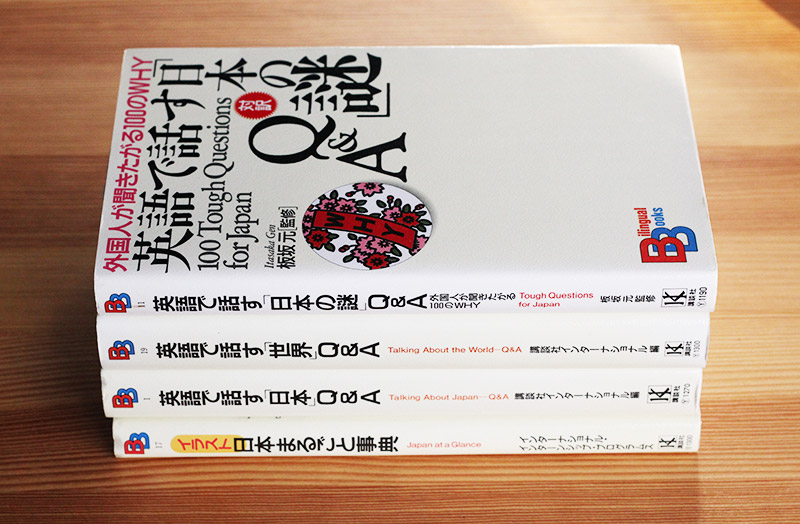
Here are the books I was able to get my hands on and will be going over in this review:
- Talking about Japan
- Talking about the World
- Japan at a Glance
- 100 Tough Questions for Japan
I have to say, buying four books without seeing if I liked one first wasn't very smart, but how could I resist? And it looked like most of them had disappeared so I didn't want to miss my chance at owning some solid study materials. There were 26 of these books published, by the way. It almost makes me feel like the four I was able to find aren't enough of a sampling to review them, but what the heck. Let's do this.
Talking About Japan
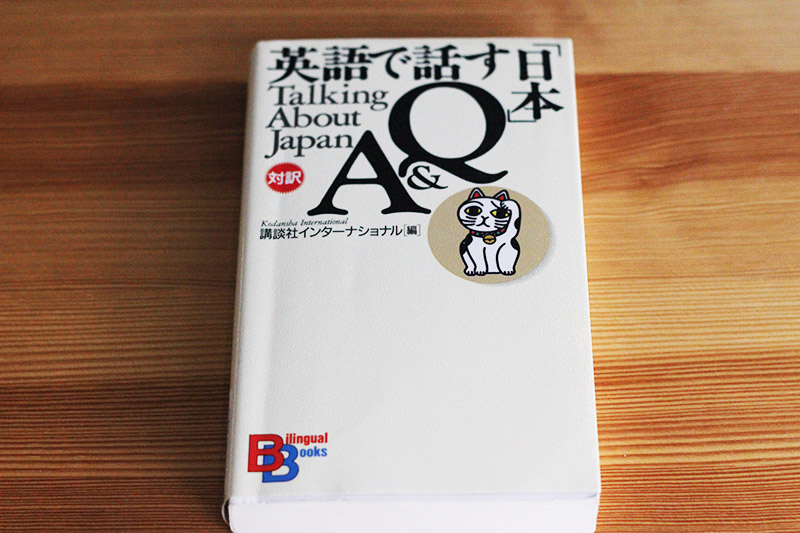
Kodansha states the goal of this series to be, "introducing Japanese culture to foreign readers" and along the way they added, "to encourage 'bilingual-ization.'" They go on to explain that they hoped that these books would get Japanese and English speaking people to be able to speak about Japanese culture and the world together easier than ever before.
While I find it hard to picture a Japanese and an English speaker hunched over a book together talking about different style bathrooms, it's a pretty cool goal to have. It seems that the series just had poor timing, what with the internet getting more and more popular. All of this information and speaking between people of different languages became a lot simpler. I can't help but think that if these had become some kind of web-based series they would have done much better. In later books I noticed the prefaces claimed that this first book had been well received. Maybe that's why it's one of the few you can still find online today.
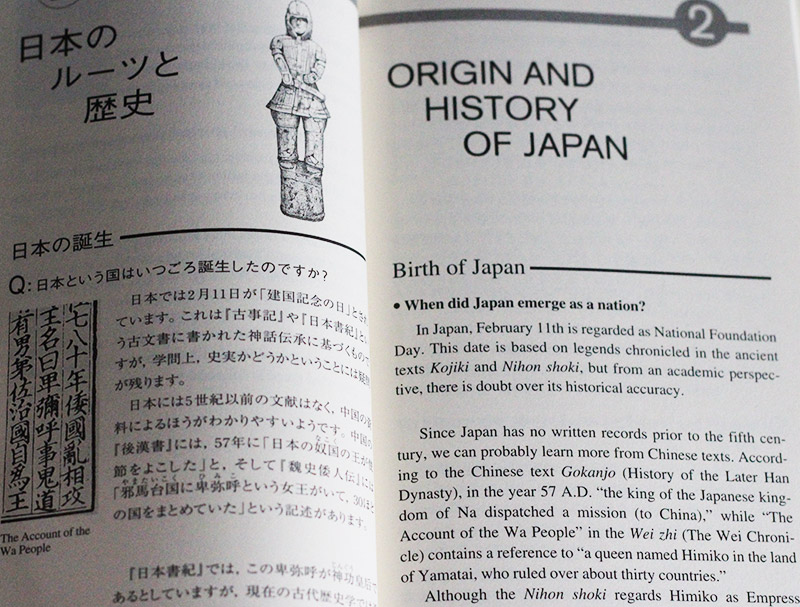
Most of the content is based around comparisons of Japan to other countries, whether that be it's size, language, religions, or economy, it's all there.
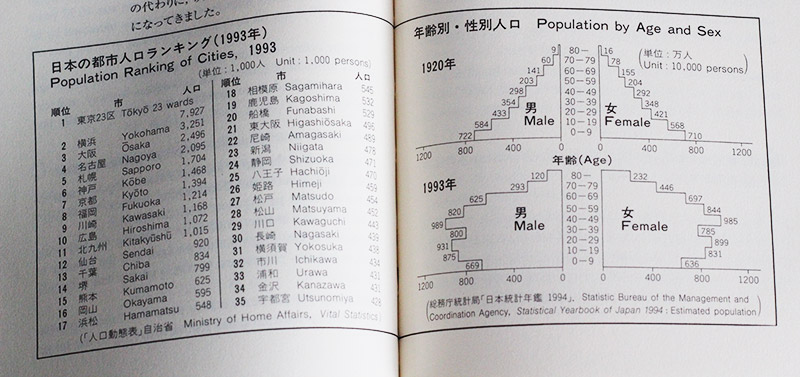
It's also full of charts and maps. Who doesn't like maps?
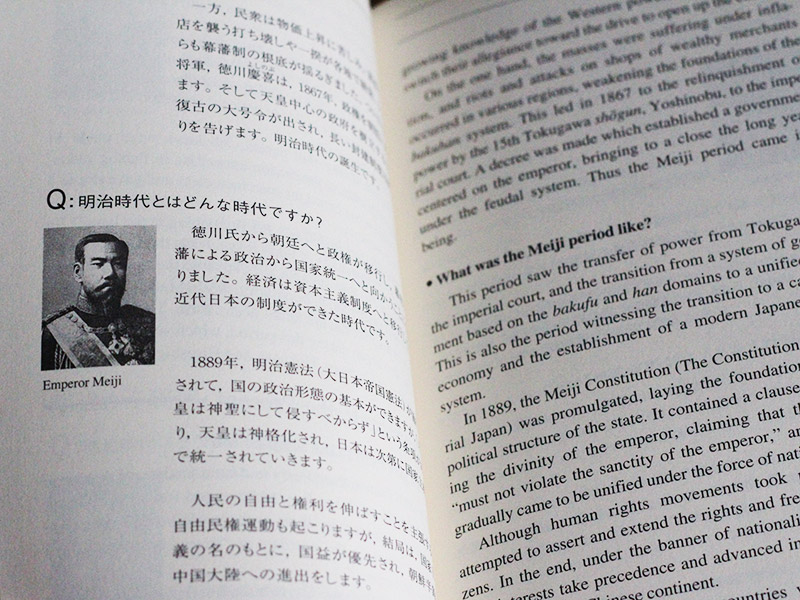
This book covers just about everything. Not in the fun, picture and guide filled way that Japan at a Glance did, but what a treasure trove of study material! Not only is it informational, but it's got Japanese and English side by side for you to study from. 297 pages worth!
Rating: 6/10
Buy: Amazon
Japan at a Glance
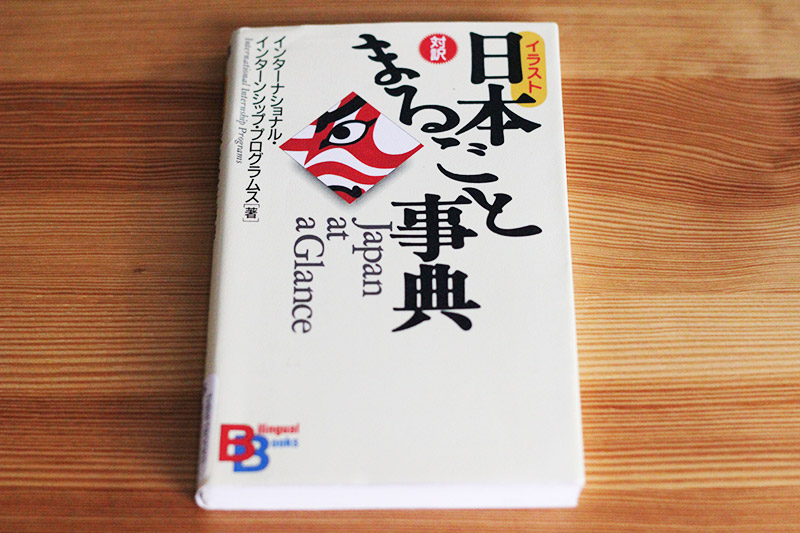
It's like a summary of everything I've ever learned in Japanese culture classes. Extremely educational, well thought out, with great charts, guides, recipes, and of course English and Japanese making for easy studying. It even goes into how traditional paper, pottery, and kokeshi dolls are made. Seriously, this book has a taste of everything and it's great.
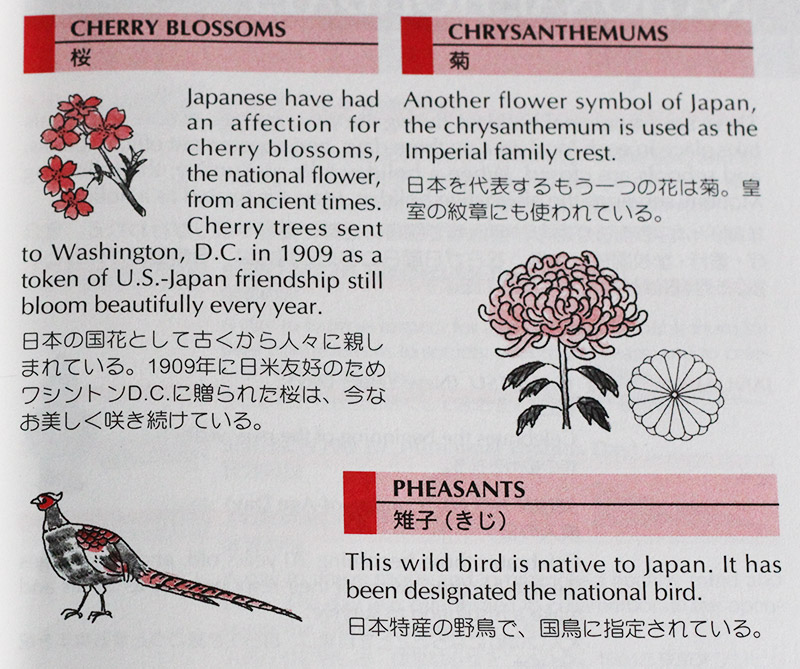
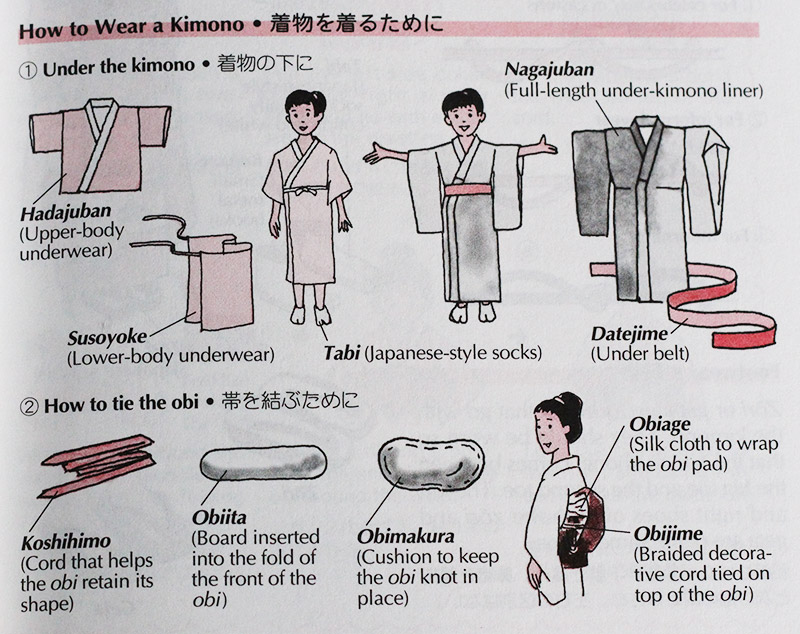
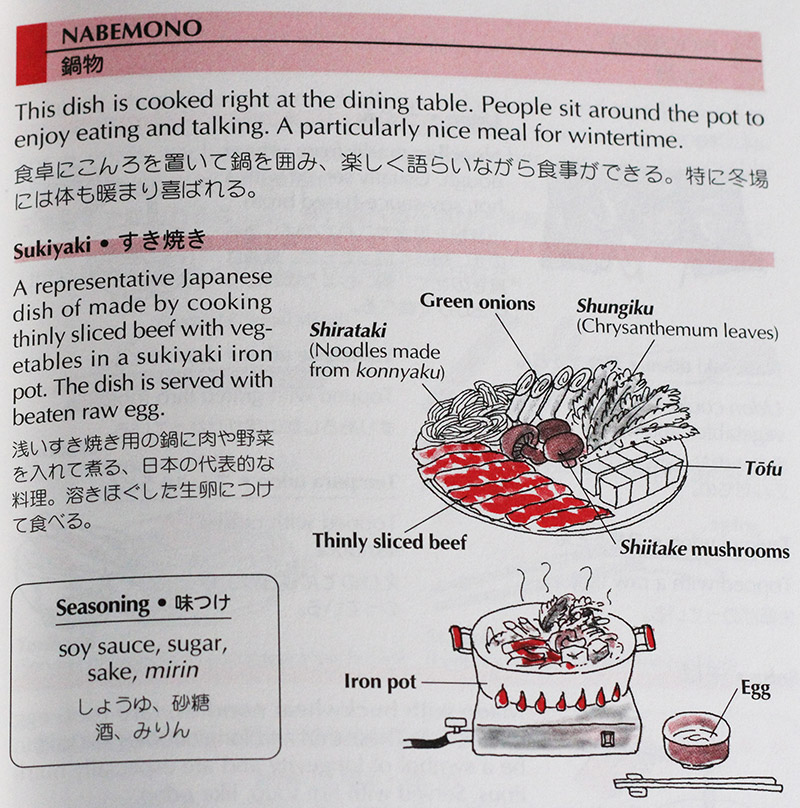
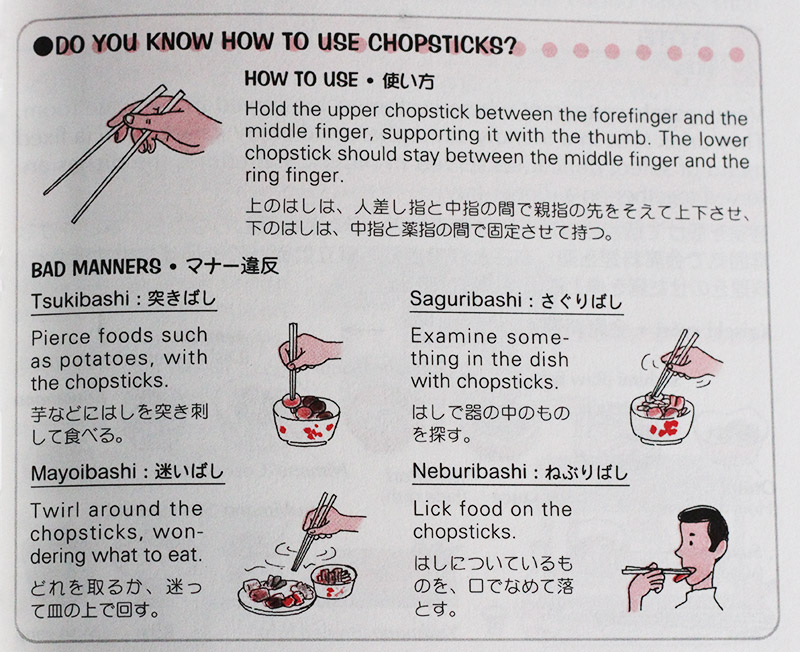
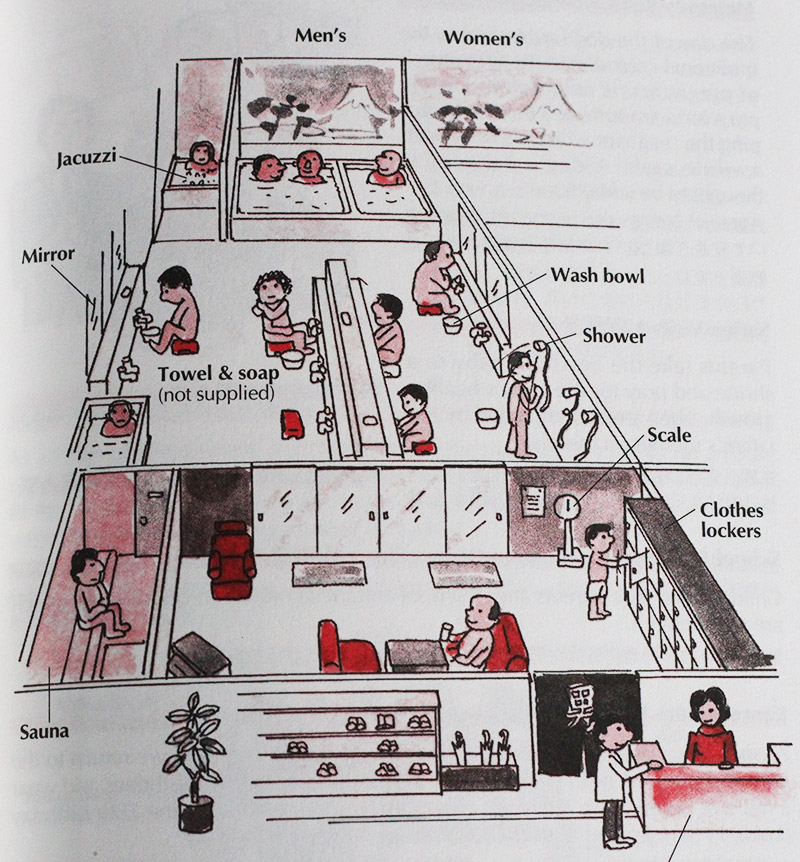
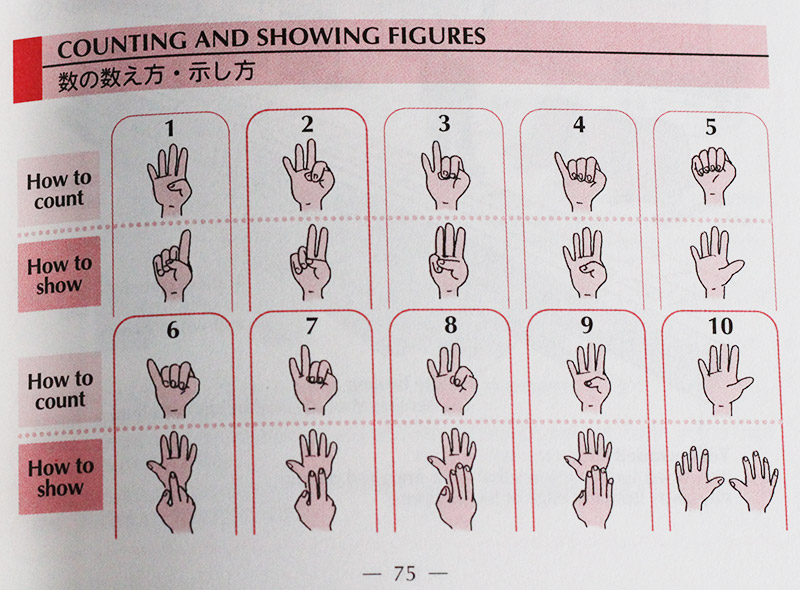
I have to say this is my absolute favorite of the four I read. It's light, it's interesting, and it's extremely well done.
Rating: 8/10
Buy: Amazon
Talking About the World
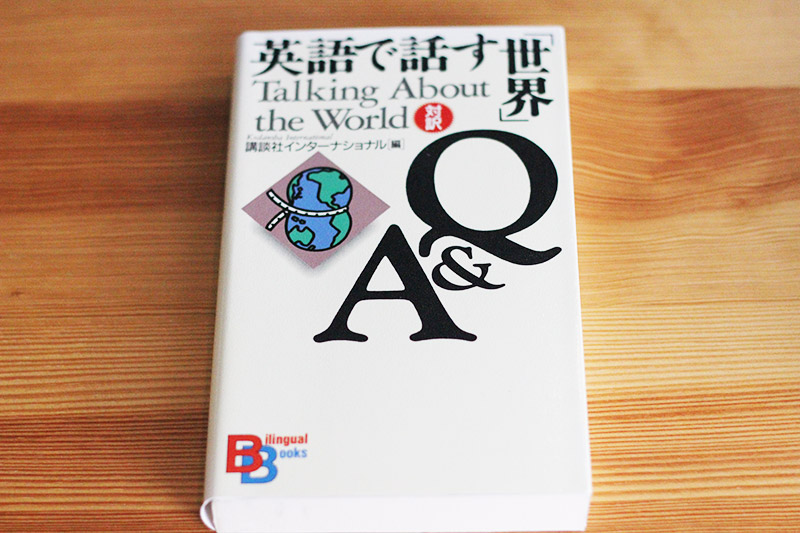
At first, this book seemed like the most boring to me. It covers everything from nature, environmental science, population, world religions and languages, to general world topics. It really covers a lot. It is in this book that I think we can find a great study tool for people who want to become translators. It's absolutely brimming with possible topics in different fields of Japanese – English translation and vice versa.
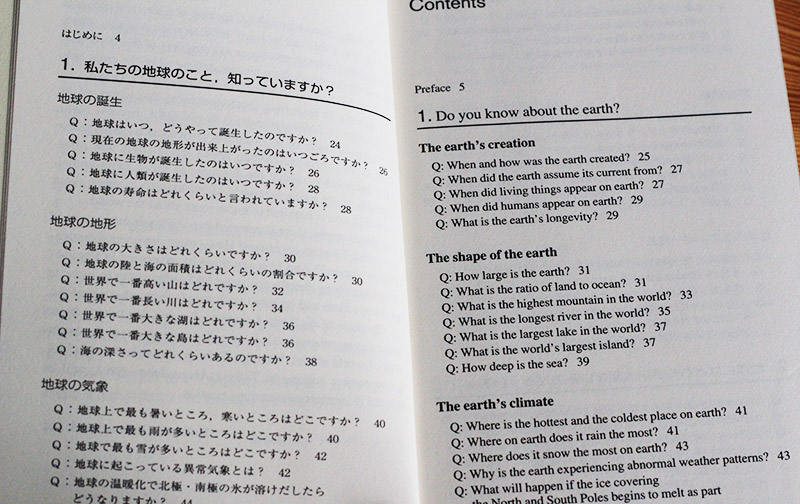
For someone who is interested in becoming a technical or freelance translator this could be a good starting point once you hit the upper-intermediate/advanced level. You not only see translation decisions, but it's not flowery literature. It's factual stuff; stuff you might one day be translating, if you're interested in environmental, political, and/or global issues that is.
Rating: 6/10
Buy: Amazon
100 Tough Questions for Japan
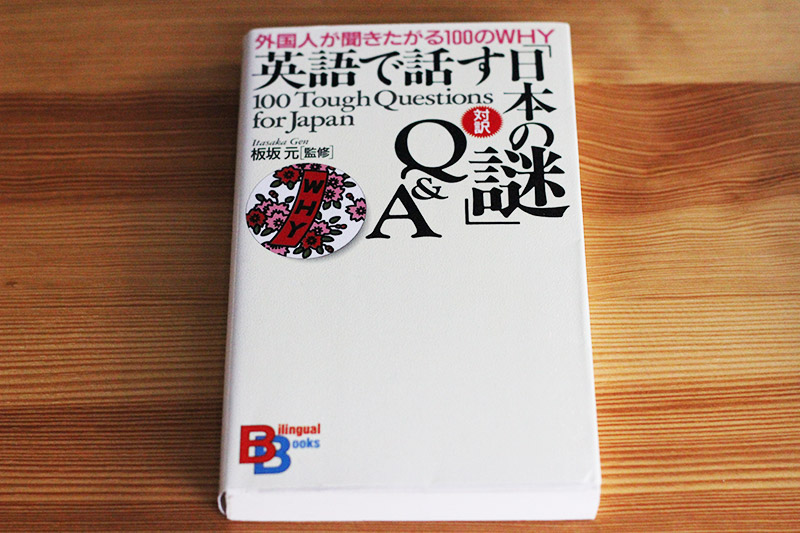
They were doing so well until I got to this one. I don't know exactly what happened but the writing style just feels so old. Not the charming kind of old either, more like dated and a bit embarrassing. Take a look at these:
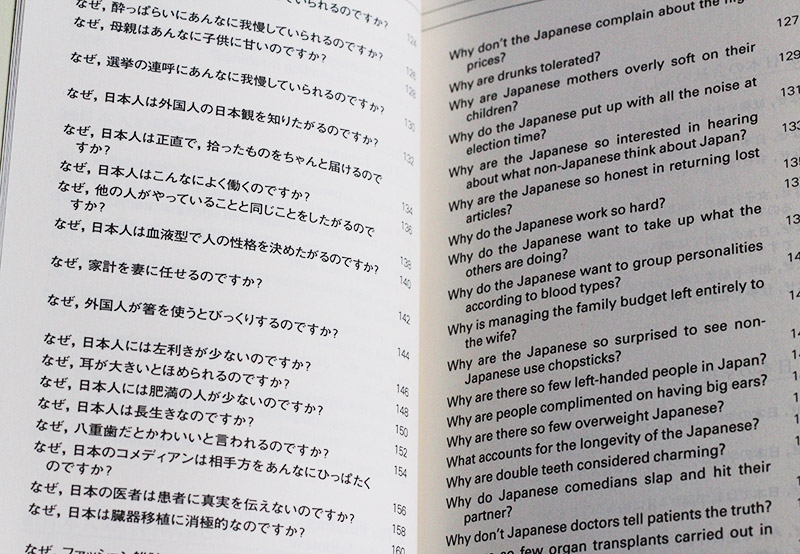
Wow grandma, please, you're embarrassing me. The other problem is that these sometimes very loaded questions are answered in a single, small page. The answers feel pretty shallow most of the time too. I don't understand how this book can even be in the same series as Japan at a Glance and Talking About Japan.
I would say, at least you can use this one to study! But, I'm not so sure you'd want to. The English is so dated. I don't remember people in the 90s talking this way. It feels like someone really old translated this. So even for translation study, I'd suggest to skip it.
Rating: 3/10
Buy: Amazon
Now that we've gone through the books, let's answer some overall questions.
Can you use them to study Japanese?
Yes. The most valuable thing this series offers is that you get side by side Japanese with English translations. If you're the kind of person who wants to dig down into a book and really cram, oh man is this for you. You can also analyse the way they translate a lot of different topics. One of the most important things I've found when it comes to honing your translation skills is experience. The more you read, the more examples you have to look at, and the better you become. Seriously, there can never be enough examples on the internet, so what's better than a book that puts the original and the English side by side FOR you?
Is the material interesting?
Mostly. If you don't know much about Japan and you want to jump in, this is a pretty solid place to start. But if you're new to Japanese culture you're probably new to Japanese. Another problem is that it's dated. And by dated, I mean it feels like my grandparents wrote this. For example, they call Japanese people just "Japanese." I don't know about you, but no one I know really says that anymore. It's like calling a Jewish person a "Jew" or a Chinese person a "Chinese." Maybe that's just me, but it's not the only thing. In 100 Tough Questions for Japan in particular, it feels like so many of the questions are the things your embarrassing older relatives would ask you when they found out you were going to study Japanese in college. They feel so… ignorant.
Okay so maybe that's the point. Maybe by "tough" questions they mean things you would be too embarrassed to ask. But some of them are dated in other ways. While for me the mid 1990s don't feel so long ago, I guess these books are almost 20 years old. So there may be some questions you'd want to have answered that just don't come up. On the other hand there are older things that have changed or are no longer relevant. Trains and taxis are different now. The paper bills have changed too since this book came out, but at least you get a little history lesson.
Are they worth buying?
That really depends. If you're already at a cool thrifty book store and you see one, I think you should grab it. It will probably be about $3 and even if you don't use it to study seriously, it looks pretty cool on a bookshelf. If you can find one cheap on Amazon like I did, you might want to pick it up. But remember, the content is old and the English reflects that. If you want to study Japanese – English translation, it might be helpful as a study tool. That's what I used mine for at least. If all you want to do is study Japanese culture, there are way better, way more up to date books out there for you. You should probably skip these.
Verdict
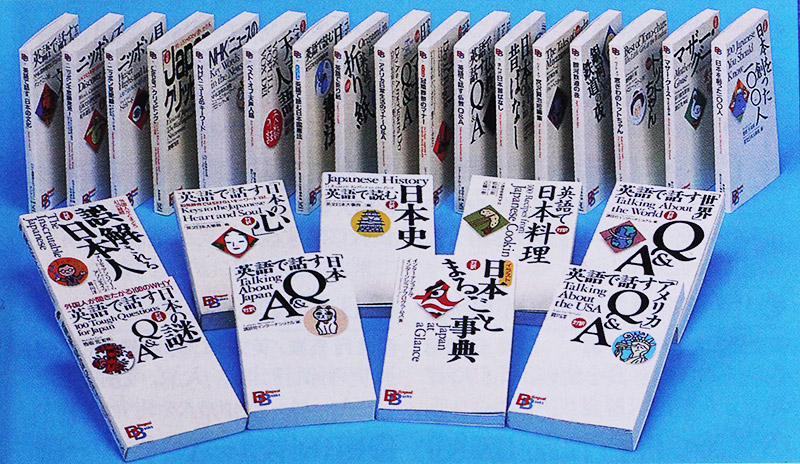
These are the kinds of books that you get out of what you put in. Are they designed to teach you Japanese? No. Can you use them to get better and practice? Totally. But you should already be past the intermediate level, or at least be super determined and ready to work hard to use them. Out of the four I read, I can easily say the most interesting was Japan at a Glance. Maybe because it was illustrated, but it felt like I was reading mini Tofugu articles the whole time, so it was pretty enjoyable. It's more educational than opinion driven, so if you're going to go out of your way to buy one, pick this one. If you want to study translation, go ahead and grab the others too. They make a pretty good conversation piece, since your Japanese and English speaking friends can read them as well.
Kristen’s Review
These books are very hit and miss. If you happen to see one that’s for sale at a used book store, I think it’s worth picking up, but I wouldn’t go out of my way to order them. And if you do choose to use them to study, you’ll only get out as much as you’re willing to put in. So there are definitely better methods out there.
